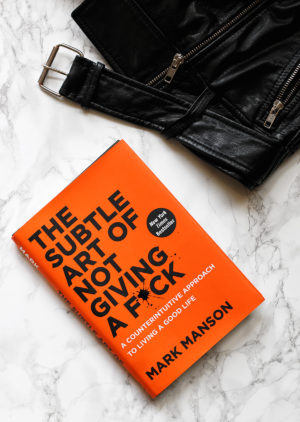
At the beginning of the year, I said 2018 would be an exciting and challenging year for me as I’ve finally started the full-time freelancer chapter of my professional life. I’ve even shared the very first experiences and lessons after the first month.
Well, I’m happy to say my freelancing is still going on and I’ll probably make it to Year 2.
I’d be lying if I said there were no challenges or my year didn’t resemble a rollercoaster. Some months were very successful, others slower. Some pitches were successful, others fell through. It’s the nature of this game.
I’m still at the very beginning of this journey and I know there are a lot of things to learn and get better at. However, I do feel like I can now share some lessons I think are important for fellow freelancers or anyone else who’s considering doing freelancing work either as a side hustle or full-time job. To be honest, most of these skills and attitudes are probably applicable to most jobs and employment forms, but they are definitely essential for freelancing. I say this confidently both as I freelancer and as someone who has worked with freelancers a lot of times over the years.
Hire for attitude, train for skills is a motto more and more companies are adopting when it comes to recruiting. Freelancers may be more often hired for skills, but attitude is still important when selecting a freelancer. Or, to be more precise, I think it’s a key deciding factor in whether a company works with a freelancer AGAIN.
Skills can take you to places, but attitude will keep you there.
I’m gonna leave out the very obvious attitude traits all freelancers must possess, like being optimistic, patient etc. etc. Yeah, they are incredibly important, but there are other things as well that can ensure your freelancing career will be a sustainable one.
Critical freelancer skills and attitudes
You’re a problem-solver
I honestly think this is the absolute most critical attitude every freelancer must pick up.
No one will really care about your mile-long CV or stellar references. Potential clients will only care about whether you can solve their problems or not. This problem-solving attitude is equally important in the first stages of pitching as well as during the actual work.
Pitching yourself is hard for most people, it definitely is a source of anxiety for me. I’m terrible at self-promotion, which is not a great thing when your whole livelihood depends on how much you can persuade people they need your skills and services. And this is when the whole problem-solving attitude comes really handy.
I don’t approach pitches and business meetings as quasi-job interviews anymore. I think of them as opportunities to help people with their problems. I really immerse myself in their case, try to see and understand what their problem is, and then think through what could solve those problems. I don’t even open with this is what I can do for you – I’d rather spend the time really understanding their problems, even offering some free guidelines and show the way what should or could be done. Then I outline how I can help with actual action steps.
In my experience, this is a much better foundation for a possible cooperation because the client can get a vision of what will happen and what they can gain by working with me. It’s also a neat psychological trick that can ease the pressure of pitching yourself. Going from I want this job, please give me your money to I just want to help with your problem is a fundamentally important attitude shift that ultimately benefits everyone.
Adopt a can-do attitude
The problem-solving attitude is also essential when you have already got the job. No matter what comes up, you must always try to solve the problem. You must be a helpful guide, someone they can trust will go to great lengths to find solutions. I can’t tell you how often I had this issue with freelancers – I ask something or run into a problem and as a first reaction, they immediately say: sorry it can’t be done.
Maybe it can’t be done (though 9 out of 10 times, it usually can), but I want them to at least try.
Be interested in people
This really closely ties in with the above point of being a problem solver and also, it’s the most organic and easy way to stumble upon potential jobs. I have a friend, who I’m also working with sometimes, who’s an absolute master at this. Just in the last month, she secured three potential jobs for us just by meeting people at social events and listening to their life. When she meets someone, she’s genuinely interested in them, asks a lot of questions and that frequently leads to people mentioning an issue or problem they are currently having. She listens to them, engages them, offers ideas and often they come back to talk some more (and work together) based on that first conversation. I must note this is very much authentic on her part and something that comes from her personality and approach to people.
Whenever I work with someone on their branding and communications strategy, I spend a lot of time just talking to them, asking lots and lots of questions so I can better understand the whole situation, their goals, their skills, everything.
Bottom line: be open, genuinely engage with people, and hopefully, good things will come out of that.
Rejections = Opportunities to learn
Disappointment is a part of every career of course, but maybe freelancers are even more exposed to that, just based on the number of times they have to go out and pitch for a job. If you cannot accept refusal and twist it into something positive, you’ll hate this kind of career.
I’ve been working at a communications agency for years before, so I got used to writing proposals for the drawer, as we used to call it, very early on. I cannot cite statistics but at least until you make it big time (and maybe even after that), you’ll have more proposals than actual jobs that’s for sure.
I never focus or mourn a job I didn’t get. I analyze the whole thing, draw some conclusions if there are any, and move on quickly. Yeah, it sucks, but I don’t let refusal take me down. I absolutely believe we can learn from every experience. I’ve picked up lots of skills and knowledge even from proposals that ultimately never went anywhere.
Learn to say no, but think strategically
One of the biggest challenges of freelancing life is learning to balance between immediate needs (i.e. money) and long-term considerations (i.e. references, connections, clientele). The pressure is real especially if you’re just starting out and a lot of people make the mistake of lowering their standards and expectations just to score jobs.
But.
I must include a but here. Because it’s not always black and white. And there’s also a very fine line between being confident enough not to undersell yourself and being too cocky, entitled, and short-sighted to even stop to analyze whether that’s particular job has certain advantages.
Money is not the only deciding factor.
I’ve said no to projects where a client offered a good deal of money because I didn’t feel that job was really for me or I had fundamental differences with them. I’ve also broken up a cooperation because it was impossible to work with the client and I knew we wouldn’t achieve any kind of result.
I’ve accepted jobs for a little less money than my usual fee just because I liked the project, I knew it’d be a very good reference, or I thought I would benefit from it professionally.
I know we all have to eat and no one will give you eggs and bread for a good reference, but if you’re in a position when you can actually make a choice, I’d really suggest taking a strategic approach. Don’t just focus on the money.
Never get too comfortable with your skills
Constant skill development is important in all jobs, but even more critical for freelancers. Because no one will send you to a company-paid workshop, give you resources, or help you stay up to date with your skills.
You have to do it all by yourself.
Skills can rapidly become obsolete, especially nowadays. Never get too comfortable with your own knowledge. Pay close attention to what companies are hiring for, anticipate their needs, stay ahead of trends, and always, always spend time on learning new skills, whether through e-courses, industry events, or books and research.
A lot of freelancers think this is a luxury and they should spend all their time and money on chasing jobs. But, once again, this is only short-term thinking – investing in your own skills and knowledge will greatly pay off in the long run.
If you have experience working as or with a freelancer, I’d be very much interested in your opinion on this issue. What does it take to make it as a freelancer?






